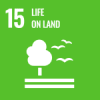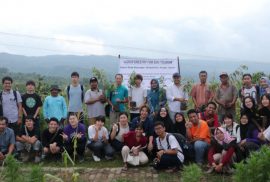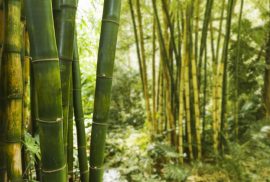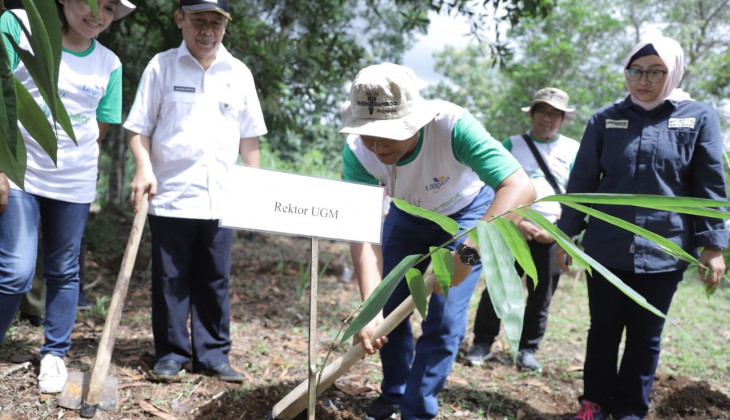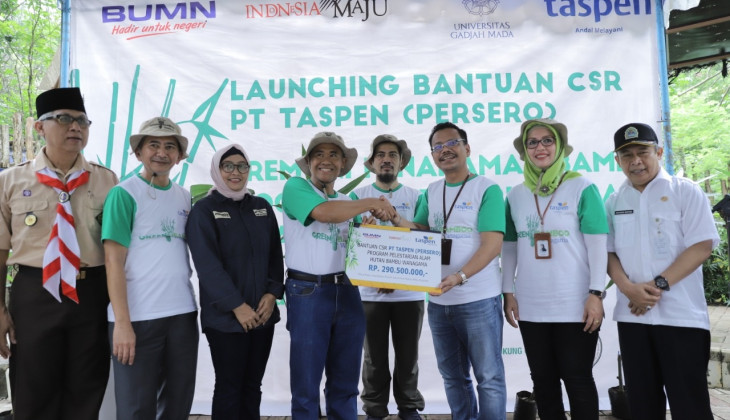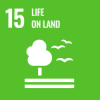Faculty of Agricultural Technology (FTP) UGM held an activity named “Planting Fruit Seeds” on Monday (2/3) afternoon at the Nawungan Fruit Plantation, Selopamioro, Imogiri, Bantul. This activity is part of the Model Development of Sustainable Agri-Environmental System for Accelerating Community in Selopamioro Village and Sriharjo Village which was initiated in 2018 by FTP UGM and Yanmar Environmental Sustainability Support Association (YESSA).
This event began with the symbolic planting of durian seedlings by the Head of Selopamioro Urban Village, Himawan Sadjati, Vice Dean for Research, Cooperation, and Community Service of FTP UGM, Dr. Sri Rahayoe, S.T.P., M.P., Head of Activities, Prof. Dr. Lilik Sutiarso, as well as the SUIJI Service Learning Program Field Supervisor, Prof. Matsuda Katsuya. Apart from them, the planting was also carried out by representatives from the Selopamioro fruit farmer group, Tugimin, as well as two students participating in the SUIJI Service Learning Program, one from Indonesia and one from Japan.
Lilik explained that this activity marked the start of the program for this year. He explained that this time, the program aims to develop agroforestry. This development is supported by the procurement of the Agro-Edu Techno Park.
“The concept is that we will bring the technologies from our research on campus here. Later, this technology will be used by the community to build their welfare. For this program, we will also cooperate with several faculties from other agro clusters at UGM, such as the Faculty of Animal Husbandry and the Faculty of Agriculture, “he explained.
Lilik then explained that this program would be carried out in several stages. One of these stages will later be implemented during the year. “We design this program for the next 3 years. In the first year, our focus will be on the institutional system, management, and human resource development of the two villages. In the second year, we will begin to solidify the infrastructure, which means that a large-scale downstream of technology will begin here. In the third year, we focus on marketing and networking so that the resulting products can benefit the community, “he explained.
After three years running, Lilik said that later there will be an evaluation of whether the community is truly independent in utilizing technology and running the entire program. “If it is assessed that it has been obtained, later intervention from the campus will be reduced. However, it does not mean that we will completely let go, but there will still be assistance, “he said.
Finally, Lilik stated that in addition to realizing the tridarma of community service, this program also aims to realize one of UGM’s missions, namely the downstreaming of technological products. “Product downstreaming is not only directed at the industry. However, with our technology being able to benefit society, the mission has been successful. We hope this program can really improve the welfare of the people here, “he concluded.
Source: https://ugm.ac.id/id/berita/19090-ftp-ugm-tanam-bibit-buah-di-selopamioro

